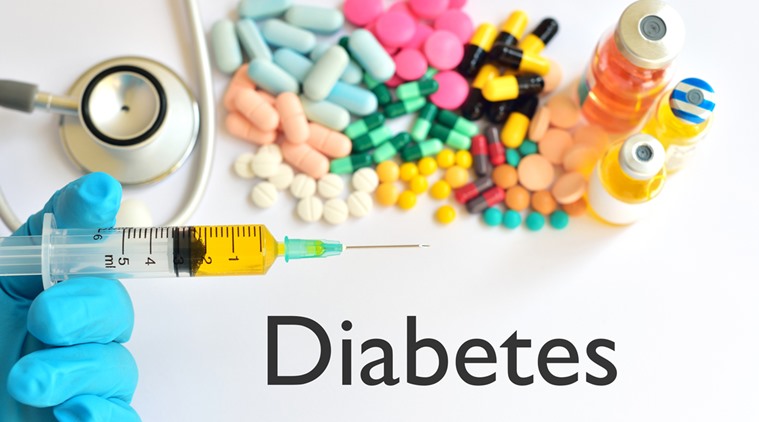Diabetes Awareness: The Importance Of Healthy Eating

DID YOU KNOW THAT NOVEMBER IS DIABETES AWARENESS MONTH? This international day focuses on raising awareness for the different forms of diabetes.

Diabetes is a disease which you may be familiar with. Most of us have heard of the disease, know of someone suffering from diabetes, or even suffer from diabetes ourselves.
Essentially, diabetes occurs when your blood sugar is too high, and your body either does not make enough insulin (a hormone secreted by the pancreas to regulate blood sugar levels), or the insulin does not work the way that it should, which causes various health problems.
The number of diabetes cases, both nationally and globally, is on the rise and eating healthily is exceptionally important to help reduce your risk and manage the disease.
THE NOT-SO-SWEET FACTS:
According to the International Diabetes Federation of Africa there were 2.28 million cases of diabetes in South Africa in 2015 alone. This means that 7% of the population, between the ages of 20-79, suffered from some form of diabetes that year. An even more startling statistic is that 1.396 adults out of 1,000 adults suffer from diabetes but are undiagnosed.
There are three main types of diabetes according to the American National Institute of Diabetes and Digestive and Kidney Diseases:
- Type 1 (when your body is no longer able to produce insulin)
- Type 2 (characterised by insulin resistance)
- Gestational diabetes (when hormones secreted during pregnancy lead to insulin resistance).
The most common type of diabetes is type 2, contributing to 90% of diabetes cases. It is also estimated that 5-10% of any population, throughout the world, has type 2 diabetes.
SO WHY DOES TYPE 2 DIABETES OCCUR?
Type 2 diabetes is generally more likely to develop in people who are overweight or who are insulin resistant.
This means that your lifestyle and type 2 diabetes are closely linked. Being overweight contributes to having more visceral fat (fat around your abdominal organs) which affects your blood glucose (sugar) levels. Visceral fat is often as a result of poor diet and lack of exercise.
So there is a correlation between the following lifestyle factors and the development of type 2 diabetes:
- Obesity
- A lack of physical exercise
- Poor diet
Because type 2 diabetes is very closely linked to your metabolism (the process which converts what you eat and drink into energy), the way you eat and what you eat can heavily influence the development and management of this disease.
So with the increasing risk of developing diabetes, what can be done to avoid it, or manage it better if you already suffer from diabetes?
One of the best ways you can manage your diabetes and reduce the risk of developing diabetes is through healthy living – a healthy diet and physical exercise.
HOW HEALTHY EATING CAN HELP YOU MANAGE AND REDUCE THE RISK OF DIABETES
Healthy eating and managing diabetes go hand-in-hand.
What you eat is extremely important because diabetes, especially type 2 diabetes, is so closely linked to your metabolism.
Healthy eating helps keep your blood glucose in the correct target range. As a diabetic, monitoring your blood sugar levels is especially important, which is why synthetic insulin is taken.
To maintain a healthy diet, it is important to know:
- When to eat
- How much to eat
- What to eat
Knowing what to eat as a diabetic or as a person trying to reduce your risk of diabetes can be a struggle, especially when it comes to snacks.
According to Dr Neville Wellington, many patients really struggle to manage their diabetes and get it right, but he says it can be done. He says that once people have the information they need, they can be empowered and therefore take responsibility for their health. They can change their lives dramatically through a healthy lifestyle and change of diet.
We all love snacking and consume small, and not so small, portions of tasty snacks throughout the day. However, snacking as a diabetic can be tricky and could worsen your condition if you are not snacking correctly.
Regulated amounts of Dried fruit and nuts are healthy snacks, which can have positive benefits to help you manage diabetes and even reduce the risk of developing diabetes.
WHY DRIED FRUIT AND NUTS?
For a diabetic, dried fruit and nuts are good alternatives to carb-heavy snacks laden with saturated fats.
They are known to have health properties such as:
- They are a source of unsaturated fatty acids
- They are naturally high in fibre to aid digestion
- They contain minerals and vitamins, which are in involved in regulating blood glucose levels
A study published in the Bio Med Central Nutrition Journal found that diets which predominantly feature dried fruit and nuts reduce the risk of diabetes and cardiovascular disease.
This is because dried fruit and nuts, eaten in controlled portions, help to regulate blood glucose levels and prevent weight gain, which helps to reduce insulin resistance.
THERE TWO MAJOR WAYS THAT DRIED FRUIT AND NUTS HELP TO MANAGE AND PREVENT DIABETES:
1. THEY HELP TO REGULATE BLOOD SUGAR LEVELS
Eating dried fruit and nuts in moderation can help regulate and lower your blood sugar levels.
A study conducted by the St Michael’s Hospital in Canada found that tree nuts are extremely effective to help control blood sugar levels and reduce bad cholesterol in people that suffer from type 2 diabetes.
It was shown that eating 50 grams of raw, unsalted, and dry-roasted tree nuts has great benefits for regulating your blood sugar level. It has also been found that consuming dried fruit provides significantly higher levels of magnesium, which helps regulate blood sugar levels.
Substituting your carbohydrate-loaded snacks with a handful of dried fruit and nuts can go a long way to regulate your blood sugar levels and maintain a healthy lifestyle.
Living healthily is the first step to manage and even reduce the risk of developing diabetes.
2. THEY HELP TO REDUCE WEIGHT GAIN
If you are diabetic, weight gain is one the biggest problems that you may face, which can be caused by insulin resistance, poor diet and a lack of physical exercise.
Healthy eating is important as your diet plays a big part in your lifestyle. Dried fruit and nuts are a great way to manage your weight as they are high in energy, protein and reduce bad cholesterol.
People who eat dried fruit have a higher energy intake than people who don’t, but they also have significantly lower waist circumferences and BMI’s. Similarly, people who eat tree nuts have a higher energy intake but 10-15% of that energy is not absorbed.
Dried fruit and nuts are therefore a healthy alternative to refined carbohydrate-laden foods as they are high in energy, but low in bad fats.
But remember, as with everything else in life, moderation is essential.
Diet and exercise are integral parts of a healthy lifestyle. Hopefully with just a handful of dried fruit and nuts others will be encouraged to eat healthier and to live an active and healthy lifestyle.




